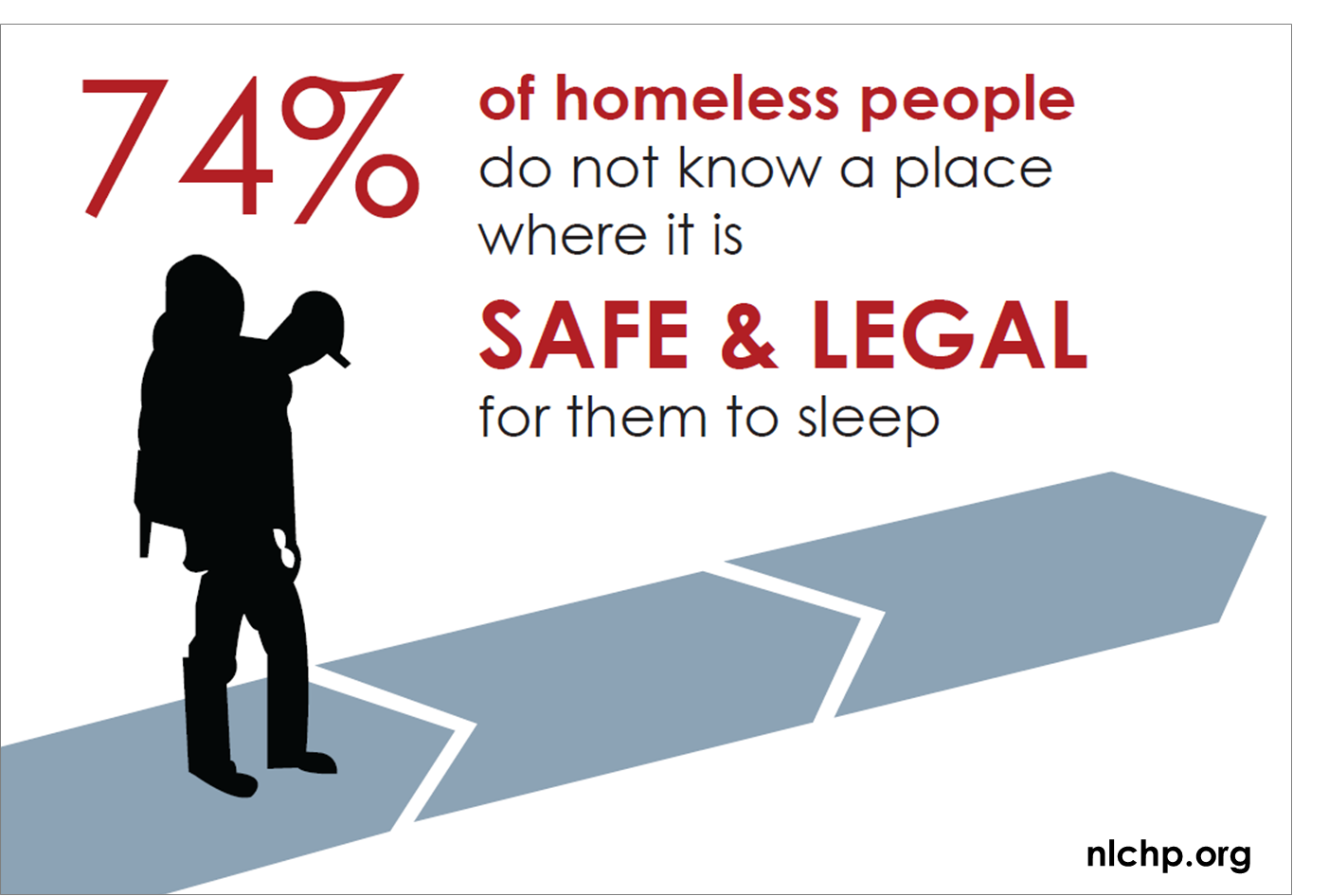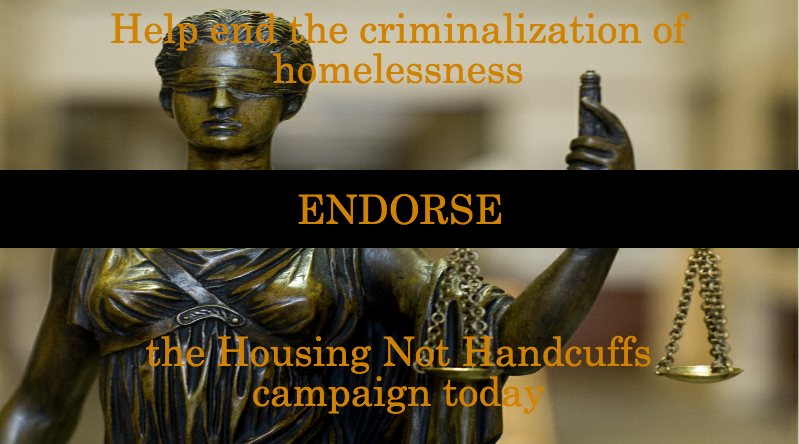Homelessness is caused by a severe shortage of affordable housing.

Despite the lack of affordable housing and shelter space, many cities have chosen to criminally punish people living on the street for doing what any human being must do to survive.
Criminalization measures do nothing to address the underlying causes of homelessness and, instead, only worsen the problem. There has been an increase in laws criminalizing homelessness as indicated in the Law Center's latest report, Housing Not Handcuffs. While the increase is seen for nearly every surveyed category of criminalization law, the most dramatic uptick has been in city-wide bans on fundamental human activities. This increase in city-wide bans shows that the nature of criminalization is changing and that cities are moving toward prohibiting unavoidable, life sustaining activities throughout entire communities rather than in specific areas, effectively criminalizing a homeless person’s very existence.
Criminalization laws raise important constitutional concerns, and courts across the country have found that many such laws violate the rights of homeless people. Courts have invalidated or enjoined enforcement of criminalization laws on the grounds that they violate constitutional protections such as the right to freedom of speech under the First Amendment, freedom from cruel and unusual punishment under the Eighth Amendment, and the right to due process of law guaranteed by the Fourteenth Amendment. Moreover, the criminalization of homelessness violates international human rights treaties to which the U.S. is a party. In 2014, the U.N. Human Rights Committee, reviewing U.S. compliance under the International Covenant on Civil and Political Rights, found that the criminalization of homelessness in the U.S. violated the treaty.
Criminalization Misuses Public Resources
Using the criminal justice system to address homelessness misuses police resources to address a social problem. This overuse of police to solve social problems has been criticized by many – including police officers – as contributing to the current climate of tension between police and neighborhoods subjected to unnecessarily high levels of police activity.
Criminalization is the most expensive and least effective way of addressing homelessness. A growing body of research comparing the cost of homelessness (including the cost of criminalization) with the cost of providing housing to homeless people shows that housing is the most affordable option. With state and local budgets stretched to their limit, rational, cost-effective policies are needed – not ineffective measures that waste precious taxpayer dollars.
Criminalization Laws Should Be Replaced with Constructive Solutions to Ending Homelessness
Criminalization is not the answer to meeting the needs of cities that are concerned about homelessness. There are sensible, cost-effective, and humane solutions to homelessness, which a number of cities have pursued. Check out our Model Policy Menu to find out more about these solutions.

.jpg)



